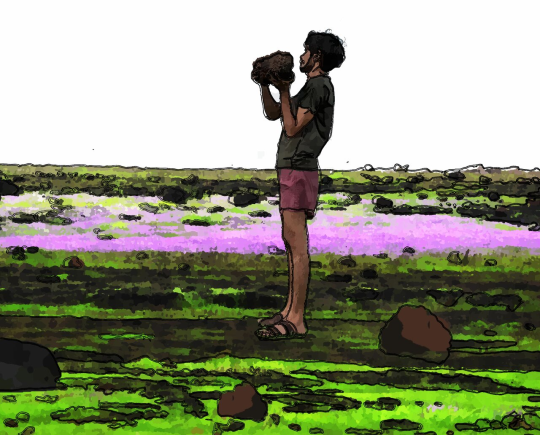Live from the Field: Global Change

Online
Mon, Nov 17, 10:00 am
– 11:00 am
Admission fees: none
Bring researchers into your classroom and give students a window into the process of scientific inquiry. Join us for a chat with researchers and professors to learn about different types of global change: human noise effects on dolphins in Panama, land-use change effects on a biodiversity hotspot in India, and comparisons of ecological disturbance in different locations in a U.S. Ecology course. Find out who they are, how they got interested in this field, and the research questions they are asking. Live from the Field Instructor Guide and student assignment, and OCELOTS online learning modules, teaching plans & pre-event reading available. Watch recorded event here: Live from the Field: Global Change, November 17, 2025
Leaders
- Smithsonian Tropical Research Institute, Bocas del Toro Marine Station, Panama:
- Laura May-Collado, Associate Professor, Biology, University of Vermont
- Konkan region, Western India:
- Jithin Vijayan, Interdisciplinary Conservation Researcher, Nature Conservation Foundation
- Aparna Watve, Coordinator, IUCN SSC Western Ghats Plant Specialist Group
- Philadelphia, Pennsylvania:
- Anne Bower, Professor, Biology, Jefferson University
Moderated by Carissa Ganong, Assistant Professor, Biology, Missouri Western State University
Details
"Live from the Field" events are 50-minute events, typically featuring researchers from three field sites who describe their interests and research in 8-minute videos, then participants join a live, moderated Q&A session with the researchers. Events are recorded for asynchronous instructional use.
In this event, researchers and professors will talk about their research on global change in Panama, India, and Pennsylvania (USA), and how using the OCELOTS learning modules have enhanced student experiences. Specifically, you'll learn about two projects: "Sounds of the Tropics: Part 3. Can you hear me? How do dolphins in Bocas del Toro, Panama communicate in a noisy habitat?" and "Between a rock and a hard place. What can turning rocks tell us about land-use change impacts on animals living in a rock outcrop?" and how this content was implemented for an undergraduate Biodiversity course at Jefferson University in the U.S.
“Live from the Field” events are international collaborations led by the Center for Environmental Inquiry that give students virtual field experiences in ecosystems all over the world as part of The Virtual Field. Events are informal and open to everyone to generate opportunities to speak with researchers and develop a personal interest in doing research. All are welcome. For more information, contact Kerry Wininger ([email protected])
The OCELOTS (Online Content for Experiential Learning of Tropical Systems) Network, funded by NSF, brings together tropical ecology researchers, active learning pedagogy specialists, software developers, and media specialists, with the vision of creating an open-access, online resource library of learning modules in tropical biology. The goal of these modules is to spark excitement in undergraduate biology courses by broadening cultural and geographic perspectives, enhancing principle-based reasoning and quantitative skills in ecology, and changing the way that students learn biology. For more information, contact Ann Russell ([email protected]).
In this unique collaboration between The Virtual Field and OCELOTS, Live from the Field events are adapted to showcase two researchers who have created educational modules, and one instructor who has implemented one of the modules in their classroom. The Q&A format that follows remains the same. Register at the link above. Each participant should register separately.
How to Sign Up
Registration is free.
Event times listed are in Pacific Daylight Time.
Zoom meeting details will be sent to you upon registration. Register at the link above. Each participant should register separately.
Details About the Center
Sonoma State University’s Center for Environmental Inquiry empowers university students to work with community members on the environmental challenges of the North Bay. Our mission is to create an engaged and environmentally ready society, one where all people have the skills to find solutions to the challenges facing our earth. SSU Preserves are open to everyone engaged in education, research, or creative inquiry. Reservations are required.

